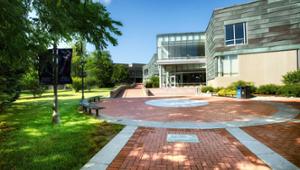
Sociology
The goal of the Sociology Department is to introduce students to classic and contemporary theoretical approaches in sociology as they pursue data collection and analysis methods with opportunities to apply theory to explain empirical phenomena.
About the Major
Sociology explores patterns of social life and examines how social structures and cultures influence our personalities, families, attitudes, behavior, work, leisure — our very identities. Sociology at Hamilton is a rigorous but creative program in which accomplished professors and engaged students work closely together on a range of topics. Students learn to conduct and assess many types of social research and find ample opportunities for hands-on work, carried out in small classes or over the summer alongside a professor.
Students Will Learn To:
- Apply core sociological concepts to explain/interrogate social phenomena
- Employ one or more sociological methods in hands-on independent research
- Describe an array of diverse human experiences
A Sampling of Courses

Seminar on the Social Production of Food
Examines the production and consumption of food in contemporary societies from a sociological perspective. We will study how food shapes personal identity and communal life; the organizational and institutional contexts food production from farm to table; the role food plays in popular culture and the rise of alternative food movements. Covers such topics as food, communal identity and family; the culture and practices of "Foodies"; the world of the restaurant kitchen; globalization and changes in farming and food consumption.
Explore these select courses:
In this course, students will read sociological texts that examine how race and gender affect people’s experiences with state-based violence and social control. This course examines the racist and sexist externally imposed state policies and practices that disenfranchise marginalized communities through drawing from what sociologist Beth Ritchie refers to as a prison nation. Topics include mass incarceration, sexual violence, deportation and detention centers, and surveillance technology. Along with examining the impact of this state-based violence, we will explore resistance and efforts to transform our penal system through anti-violence movements, prison abolition, reproductive justice, and grassroots organizing particularly within LGBTQ circles and communities of color.
Meet Our Faculty
medical sociology; the sociology of mental health and illness; social networks; aging and the life course
Race, racism, and racialization; Latinx (im)migration; Puerto Rican diaspora; sexuality; child welfare
sociology of religion, culture, and collective behavior; and social movements
Spirituality, social movements, inequality, sociology of religion, and social change
International migration and forced displacement; urban sociology; race & ethnicity; nationalism; gender and intersectionality; research methods
gender, race, class inequalities; family; education; feminist theory; qualitative methods
Careers After Hamilton
Hamilton graduates who concentrated in sociology are pursuing careers in a variety of fields, including:
- Professor/Sociologist, Florida Atlantic University
- Attorney, Legal Aid Society of Albuquerque
- Director, Digital Media & Advertising, L'Oréal Paris
- Chief of Staff, U.S. Fund for UNICEF
- Special Education Bilingual Teacher, Bronx Preparatory Charter School
- Co-Founder/Treasurer, Planting Seeds in Africa
- Men’s Basketball Coach, Rhode Island College
- First Assistant Attorney, U.S. Department of Justice
- Dentist, Kids First Pediatric Dentistry
Explore Hamilton Stories

Watson Fellow Karki ’24 to Trace Journeys of ‘the Hidden Help’
Sociology major Anusha Karki ’24 was awarded a Thomas J. Watson Fellowship, and will spend the coming year researching what she has referred to as “the hidden help.” Specifically, she plans to explore migrant domestic labor, community-building, and humanitarianism in the Philippines, the United Arab Emirates (UAE), Cyprus, and Australia.

N.Y.S. Division of Human Rights Internship Inspires McDade-Clay ’25
Niamh McDade-Clay ’25 spent the summer as an intern at the New York State Division of Human Rights in its Rochester regional office. She was supported by Summer Internship Funding Committee and the Diversity and Social Justice Project Fund. Here she tells what drew her to this opportunity and how it fits with her future plans.

Kudos! Recent Student Accomplishments
The 2023-24 academic year wrapped up with the awarding of national fellowships and scholarships, conference presentations, and a Phi Beta Kappa election of 22 seniors.
Contact
Department Name
Sociology Department
Contact Name
Matt Grace, Chair
Clinton, NY 13323











